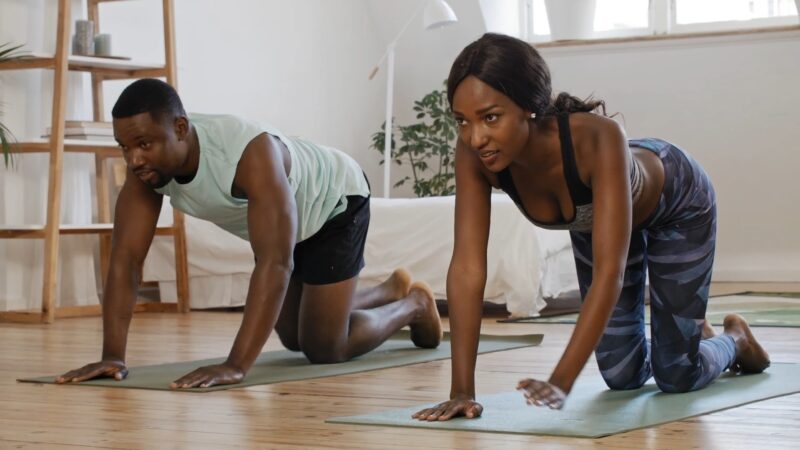In the hustle and bustle of our daily lives, stress and anxiety can often feel like unwelcome guests that refuse to leave. It’s crucial to remember, however, that we are not helpless in the face of these challenges.
There are numerous strategies and techniques available to us, known as coping mechanisms, that can help us navigate through life’s ups and downs. This article aims to shed light on healthy coping mechanisms, their importance, and how they can be incorporated into our daily routines.
Coping mechanisms are strategies that individuals use to deal with stressful situations, manage their emotions, and maintain their mental health. These mechanisms can be both healthy and unhealthy, depending on whether they contribute positively or negatively to a person’s well-being.
Unhealthy coping mechanisms, such as substance abuse or overeating, may provide temporary relief but can lead to long-term harm. On the other hand, healthy coping mechanisms, such as exercise, mindfulness, and creative outlets, can help individuals manage stress beneficially and sustainably.
1. Exercise and Physical Activity
Exercise is one of the most effective and scientifically proven coping mechanisms for stress. When we exercise, our bodies release endorphins, chemicals in the brain that act as natural painkillers and mood elevators.
Regular physical activity can reduce fatigue, improve alertness and concentration, and enhance overall cognitive function. This can be especially helpful when stress has depleted your energy or ability to concentrate.
There are numerous forms of physical activity suitable for different fitness levels. For those who enjoy high-intensity workouts, activities like running, cycling, or HIIT (High-Intensity Interval Training) can be beneficial.
For those who prefer low-intensity workouts, activities like yoga, pilates, or walking can be equally effective. The key is to choose an activity that you enjoy and can sustain in the long run.
Incorporating exercise into your daily routine doesn’t have to be daunting. Start small, perhaps with a 10-minute walk each day, and gradually increase the duration and intensity as your fitness improves.
Try to make it a part of your routine, such as exercising first thing in the morning or during your lunch break. Remember, the goal is not to achieve perfection but to make regular physical activity a part of your lifestyle.
2. Mindfulness and Meditation
These are powerful tools for managing stress and promoting mental well-being. Mindfulness involves paying attention to our thoughts, feelings, bodily sensations, and the surrounding environment in the present moment. It encourages us to observe these experiences without judgment, fostering a sense of peace and calm.
Meditation, on the other hand, is a practice where an individual uses a technique – such as mindfulness, or focusing the mind on a particular object, thought, or activity – to train attention and awareness, and achieve a mentally clear and emotionally calm and stable state.
The benefits of mindfulness and meditation for stress management are well-documented. They can help reduce negative emotions, improve focus and concentration, and enhance self-awareness.
By practicing mindfulness and meditation, we can learn to respond to stress in a more balanced and non-reactive way, promoting greater emotional well-being.
Practicing mindfulness and meditation doesn’t require any special equipment or locations. It can be as simple as taking a few minutes each day to focus on your breath, observe your thoughts and feelings, or engage fully in a particular activity.
There are also numerous apps and online resources available that provide guided meditations and mindfulness exercises for beginners. Remember, like any other skill, mindfulness, and meditation require practice. Be patient with yourself and celebrate your progress along the way.
3. Creative Outlets
Engaging in creative activities can serve as a powerful coping mechanism for stress. Whether it’s painting, writing, playing an instrument, or any other form of creative expression, these activities can provide a therapeutic outlet for expressing emotions and reducing stress.
They allow us to channel our feelings into something tangible, helping us process and make sense of our experiences.
Creative activities can also foster a sense of accomplishment and self-efficacy, boosting our self-esteem and resilience. They can provide a distraction from our worries, helping us shift our focus from negative thoughts to positive, productive actions. Moreover, they can stimulate our imagination and creativity, promoting mental flexibility and problem-solving skills.
Incorporating creative outlets into your routine doesn’t have to be complicated or expensive. Start with something simple and accessible, like doodling on a piece of paper, writing in a journal, or playing around with a musical instrument. The goal is not to create a masterpiece but to express yourself freely and enjoy the process. Remember, creativity is not about the end product, but the journey of exploration and self-expression.
4. Social Support
Building and maintaining a strong support system is crucial for our mental and emotional well-being. Having people we can turn to for advice, comfort, or simply a listening ear can make a significant difference in how we cope with stress and letting go of the emotional weight that is slowing us down.
Social support can provide emotional comfort, validation, and a sense of belonging, helping us navigate through life’s challenges more effectively.
There are numerous ways to seek social support. This could involve reaching out to friends and family, joining a support group, or participating in community activities. It’s important to remember that seeking support is not a sign of weakness, but a strength. It shows that we recognize our needs and are proactive in addressing them.
Connecting with others can also provide opportunities for giving support, which can be equally beneficial. Helping others can boost our self-esteem, foster a sense of purpose, and promote feelings of happiness and satisfaction. Remember, social support is a two-way street. It involves both giving and receiving, and both aspects are crucial for our well-being.
5. Healthy Communication
Effective communication plays a crucial role in coping with stress and conflicts. It allows us to express our thoughts and feelings clearly, understand others’ perspectives, and resolve disagreements constructively. Healthy communication can foster better relationships, reduce misunderstandings, and promote mutual respect and understanding.
Improving communication skills involves strategies such as active listening, assertiveness, and empathy. Active listening involves fully focusing on the speaker, understanding their message, and responding thoughtfully. Assertiveness involves expressing our thoughts and feelings openly and respectfully, without aggression or passivity. Empathy involves understanding and sharing the feelings of others, promoting emotional connection and trust.
Healthy communication also involves managing our non-verbal communication, such as body language, facial expressions, and tone of voice. These non-verbal cues can often convey more than our words, and being aware of them can enhance our communication effectiveness. Remember, effective communication is a skill that can be learned and improved with practice.
6. Journaling and Self-Reflection
Journaling can be a powerful tool for processing emotions, thoughts, and experiences. It allows us to express our feelings freely and honestly, without fear of judgment or criticism. By putting our thoughts into words, we can gain clarity, understand our feelings better, and find solutions to our problems.
There are numerous ways to journal. Some people prefer free writing, where they write whatever comes to mind without worrying about grammar or punctuation. Others prefer structured journaling, where they respond to specific prompts or questions. There’s no right or wrong way to journal; the key is to find a method that works best for you.
Journaling can also facilitate self-reflection, a process of examining and understanding our thoughts, feelings, and behaviors. By reflecting on our experiences, we can gain insights, learn from our mistakes, and make positive changes in our lives. Remember, the goal of journaling and self-reflection is not to judge or criticize ourselves but to understand and improve ourselves.
7. Time Management and Organization
Effective time management and organization can significantly reduce stress levels. By managing our time efficiently, we can ensure that we have enough time for our work, personal life, and self-care activities. This can reduce feelings of overwhelm, improve productivity, and enhance our overall well-being.
Strategies for effective time management include prioritizing tasks, setting realistic goals, taking regular breaks, and delegating tasks when possible. It’s also important to set boundaries and learn to say no to unnecessary commitments that can lead to overwork and burnout.
Staying organized can also reduce stress by creating a sense of order and control. This could involve keeping our physical space tidy, using tools like calendars and to-do lists, and developing routines and habits that streamline our daily activities. Remember, the goal of time management and organization is not to fill every minute with productivity but to create a balanced and sustainable lifestyle.
8. Healthy Eating and Nutrition
A balanced diet plays a crucial role in our mental well-being. Certain nutrients, like omega-3 fatty acids, B vitamins, and antioxidants, have been shown to support brain health and mood regulation. By making nutritious food choices, we can nourish our bodies and minds, boost our energy levels, and manage stress more effectively.
Mindful eating practices can also enhance our overall wellness. This involves paying attention to our hunger and fullness cues, eating slowly and without distraction, and savoring the flavors and textures of our food. By eating mindfully, we can enjoy our food more, improve our digestion, and prevent overeating.
Remember, healthy eating is not about strict diets or deprivation, but about balance and enjoyment. It’s about making food choices that nourish our bodies and minds, while also allowing ourselves to enjoy our favorite foods in moderation.
9. Stress Reduction Techniques
Numerous stress reduction techniques can promote relaxation and calmness. These include deep breathing, progressive muscle relaxation, and aromatherapy. These techniques can help reduce physical tension, slow down our heart rate, and promote feelings of peace and tranquility.
Deep breathing involves taking slow, deep breaths, which can help activate our body’s relaxation response. Progressive muscle relaxation involves tensing and then relaxing each muscle group, which can help reduce physical tension and promote relaxation. Aromatherapy involves using essential oils to stimulate our sense of smell, which can help promote relaxation and improve mood.
These techniques can be practiced anywhere and anytime, making them a convenient and accessible coping mechanism for stress. Remember, like any other skill, these techniques require practice. Be patient with yourself and celebrate your progress along the way.
10. Seeking Professional Help
Sometimes, despite our best efforts, stress and anxiety can become overwhelming. In such cases, it’s important to seek professional help. Therapists, counselors, and support groups can provide guidance, support, and effective coping strategies to manage stress and improve mental health.
Seeking help for mental health concerns is not a sign of weakness, but a sign of strength. It shows that we recognize our needs and are proactive in addressing them. It’s important to destigmatize the idea of seeking help for mental health concerns and recognize it as a crucial aspect of self-care and well-being.
Remember, you don’t have to face your challenges alone. Help is available, and reaching out for support is the first step towards healing and recovery.
11. Hobbies and Leisure Activities
Engaging in hobbies and leisure activities can provide a much-needed break from our daily stresses. Whether it’s gardening, dancing, photography, or any other activity, hobbies can provide enjoyment, relaxation, and a sense of fulfillment. They can help us shift our focus from our worries to something we enjoy, promoting positive emotions and stress relief.
Hobbies can also provide opportunities for learning and personal growth. They can challenge us, stimulate our creativity, and foster a sense of accomplishment. Moreover, they can provide opportunities for social interaction, helping us connect with like-minded individuals and build supportive communities.
Incorporating hobbies into your routine doesn’t have to be time-consuming or expensive. It could be as simple as spending a few minutes each day doing something you enjoy, like reading a book, listening to music, or gardening. The key is to choose activities that you enjoy and look forward to, making them a rewarding and enjoyable part of your routine.
12. Setting Boundaries and Saying No
This is crucial for protecting our mental and emotional well-being. It involves defining what is acceptable and unacceptable behavior from others and respectfully asserting our rights and needs. By setting boundaries, we can protect our time, energy, and emotional space, reducing stress and promoting self-care.
Saying no to unreasonable demands or overcommitment is a crucial aspect of setting boundaries. It can be challenging, especially if we’re used to pleasing others or fear conflict. However, it’s important to remember that we have the right to say no and that doing so can protect our well-being and prevent burnout.
Strategies for saying no assertively include being clear and direct, using “I” statements to express your needs, and offering alternatives if possible. Remember, saying no is not about being selfish or unkind, but about respecting and taking care of ourselves. It’s about recognizing our limits and ensuring that we don’t overextend ourselves at the expense of our well-being.
Conclusion
In conclusion, healthy coping mechanisms play a crucial role in managing stress and promoting mental and emotional well-being. Whether it’s through exercise, mindfulness, creative outlets, social support, healthy communication, journaling, time management, healthy eating, stress reduction techniques, seeking professional help, hobbies, or setting boundaries, these strategies can help us navigate life’s challenges more effectively and enhance our quality of life.




















